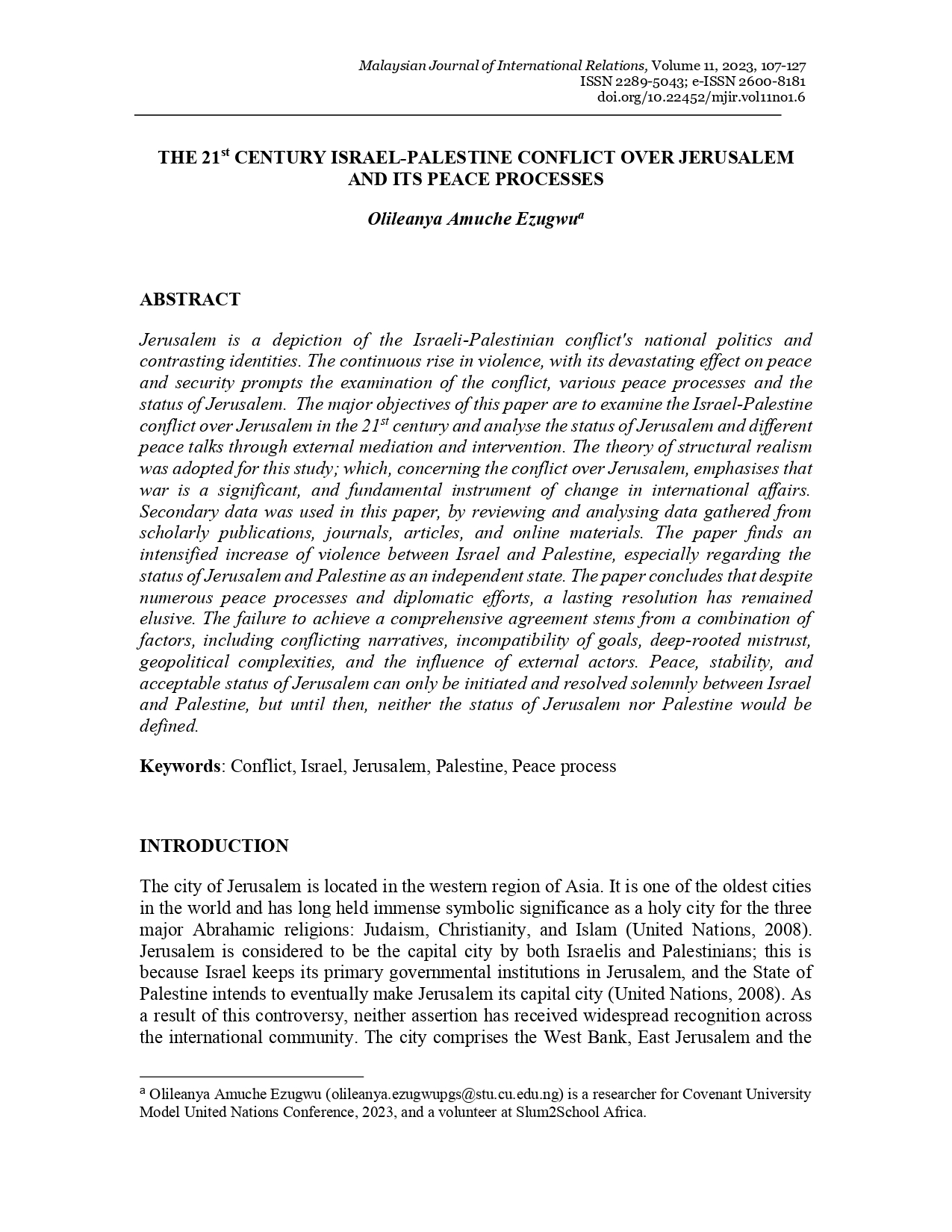The 21st Century Israel-Palestine Conflict Over Jerusalem and its Peace Processes
Main Article Content
Abstract
Jerusalem is a depiction of the Israeli-Palestinian conflict's national politics and contrasting identities. The continuous rise in violence, with its devastating effect on peace and security prompts the examination of the conflict, various peace processes and the status of Jerusalem. The major objectives of this paper are to examine the Israel-Palestine conflict over Jerusalem in the 21st century and analyse the status of Jerusalem and different peace talks through external mediation and intervention. The theory of structural realism was adopted for this study; which, concerning the conflict over Jerusalem, emphasises that war is a significant, and fundamental instrument of change in international affairs. Secondary data was used in this paper, by reviewing and analysing data gathered from scholarly publications, journals, articles, and online materials. The paper finds an intensified increase of violence between Israel and Palestine, especially regarding the status of Jerusalem and Palestine as an independent state. The paper concludes that despite numerous peace processes and diplomatic efforts, a lasting resolution has remained elusive. The failure to achieve a comprehensive agreement stems from a combination of factors, including conflicting narratives, incompatibility of goals, deep-rooted mistrust, geopolitical complexities, and the influence of external actors. Peace, stability, and acceptable status of Jerusalem can only be initiated and resolved solemnly between Israel and Palestine, but until then, neither the status of Jerusalem nor Palestine would be defined.
